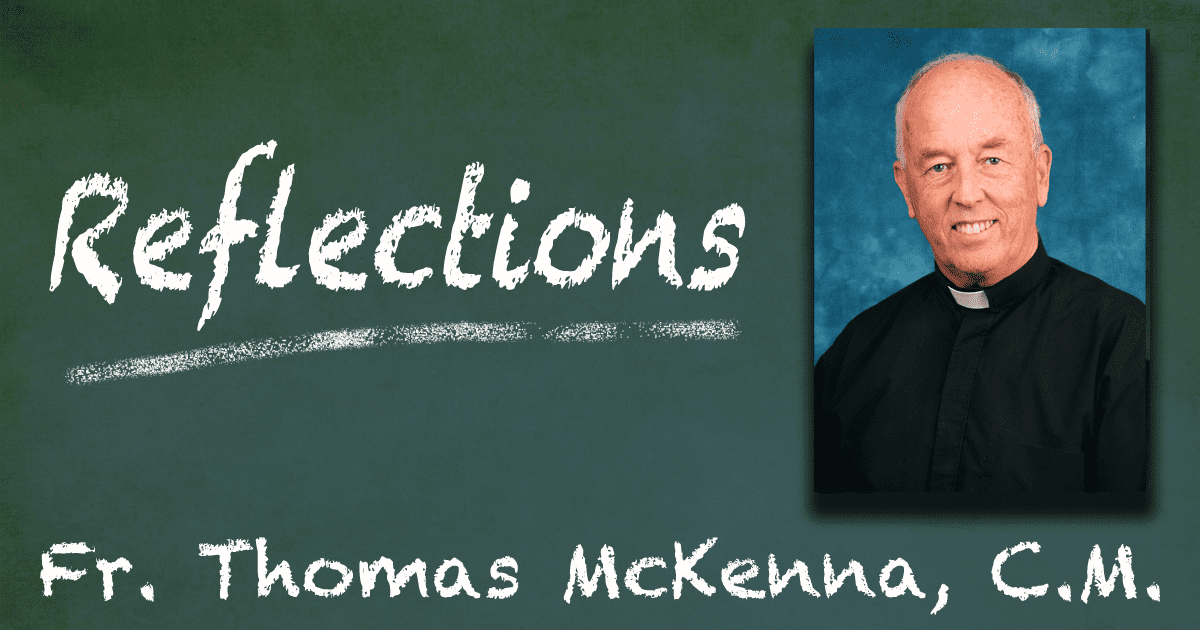“Purity of Intention,” is a term that often crops up in religious writings. It means that when acting for God and God’s people, my motivation should be primarily for the good of the other as opposed to reasons that are selfish, egotistical and self-promoting. I give to a charity, for instance, to help the people intended and not to indebt them to me or burnish my reputation. But a 100% pure intention, as everyone knows, is hard to come by. What of good actions for reasons that are neutral or mixed? Do these mingled, grey motivations figure in the Christian life?
 It’s a question that arises in the story of Zacchaeus, the little man who clambered up the big tree to get a glimpse of Jesus. He was a seeker, open to what might happen if he could see this wandering preacher everyone was chatting about. Not especially religious, he was curious to find out – and so he climbs. Jesus notices him up there in the branches, looks him in the eye, and then invites Himself into Zacchaeus’ home. And the rest is history, or better salvation history.
It’s a question that arises in the story of Zacchaeus, the little man who clambered up the big tree to get a glimpse of Jesus. He was a seeker, open to what might happen if he could see this wandering preacher everyone was chatting about. Not especially religious, he was curious to find out – and so he climbs. Jesus notices him up there in the branches, looks him in the eye, and then invites Himself into Zacchaeus’ home. And the rest is history, or better salvation history.
The story follows a pattern – following through on some mostly neutral inclination and because of that, horizons opening. You feel an impulse to do something connected with faith – and you pursue it. In the devotional realm it might be weekly reading from the Bible or taking 5 minutes to pray just before going to sleep. In the personal arena, making an extra effort to attribute good intentions to someone who annoys you. Or on a societal level, joining in a campaign for improving the environment. You felt some prompt to act in a more generous way and went with it. And when you did, a new realization took hold. This spiritual book I picked up turned out to contain more wisdom than I thought; these daily sound-bite conversations with God comfort me in surprising ways; this reaching out to a distressed neighbor has softened something inside me.
A case in point. I know a woman who went back and forth about joining the Vincent de Paul Society in her parish. She knew it helped needy families but was suspicious and even little afraid to meet the kinds of people it served — but she followed the impulse nevertheless. From the face to face contacts in the home visits, she grew in her compassion for the have-nots in her city. Needy people, at first frightening, revealed their goodness to her as well as their pluck to keep on going in life. “Sometimes when I’m with them I even sense grace seeping through,” she said to herself. Going with this impulse, this little nudge, she found herself in a more giving world, one touched by God’s hand.
This is what can happen when, like Zacchaeus up in that tree, we allow something to nudge us forward toward the good – indeed toward something holy. In approaching situations with openness, we start to notice the eyes of The Lord noticing us. Meeting his gaze, we find Him inviting Himself into our lives, into our homes.
So it was with the wavering woman. In going with the impulse to step out of her comfortableness, she moved toward unsuspected goodness. Encountering the dignity and strength of these folks, she was able to read something more in the picture, the presence of the All-Good God. Interestingly, Pope Francis repeatedly uses this word, “encounter,” to describe the sacramental character of such person to person meetings as they reveal the holy in the course of a day.
The pattern: staying open to generous impulses and then following through. Like the seeker Zacchaeus, when we let ourselves be prodded toward the good we’re more liable to notice God’s care for creation and sense The Lord Jesus’ eagerness to come into our homes. We all have felt these inklings, these little (and big) prods to respond to the Spirit’s call. May the examples of Vincent and Louise and Frederick as they “follow through” in their own creative ways nudge us toward gospel action.







Thanks, Tom. Now I understand better, I think, Phil 1, 15-18:
Of course, some preach Christ from envy and rivalry, others from good will. The latter act out of love, aware that I am here for the defense of the gospel; the former proclaim Christ out of selfish ambition, not from pure motives, thinking that they will cause me trouble in my imprisonment. What difference does it make, as long as in every way, whether in pretense or in truth, Christ is being proclaimed? And in that I rejoice.
This is really good, Fr. Tom, thank you.